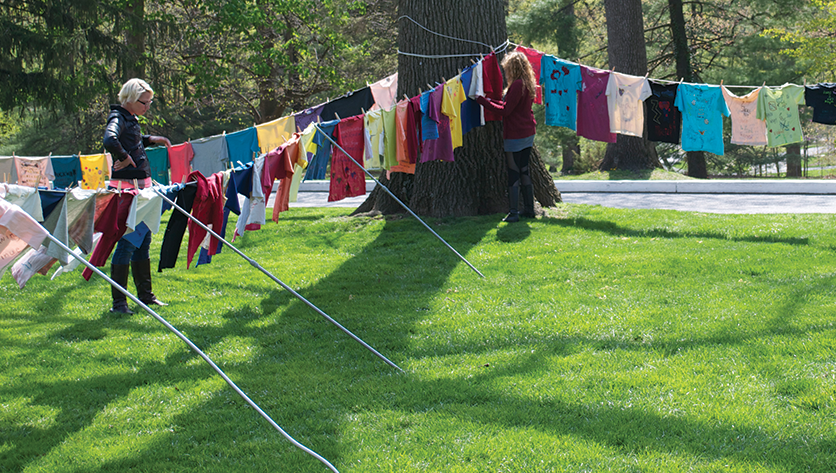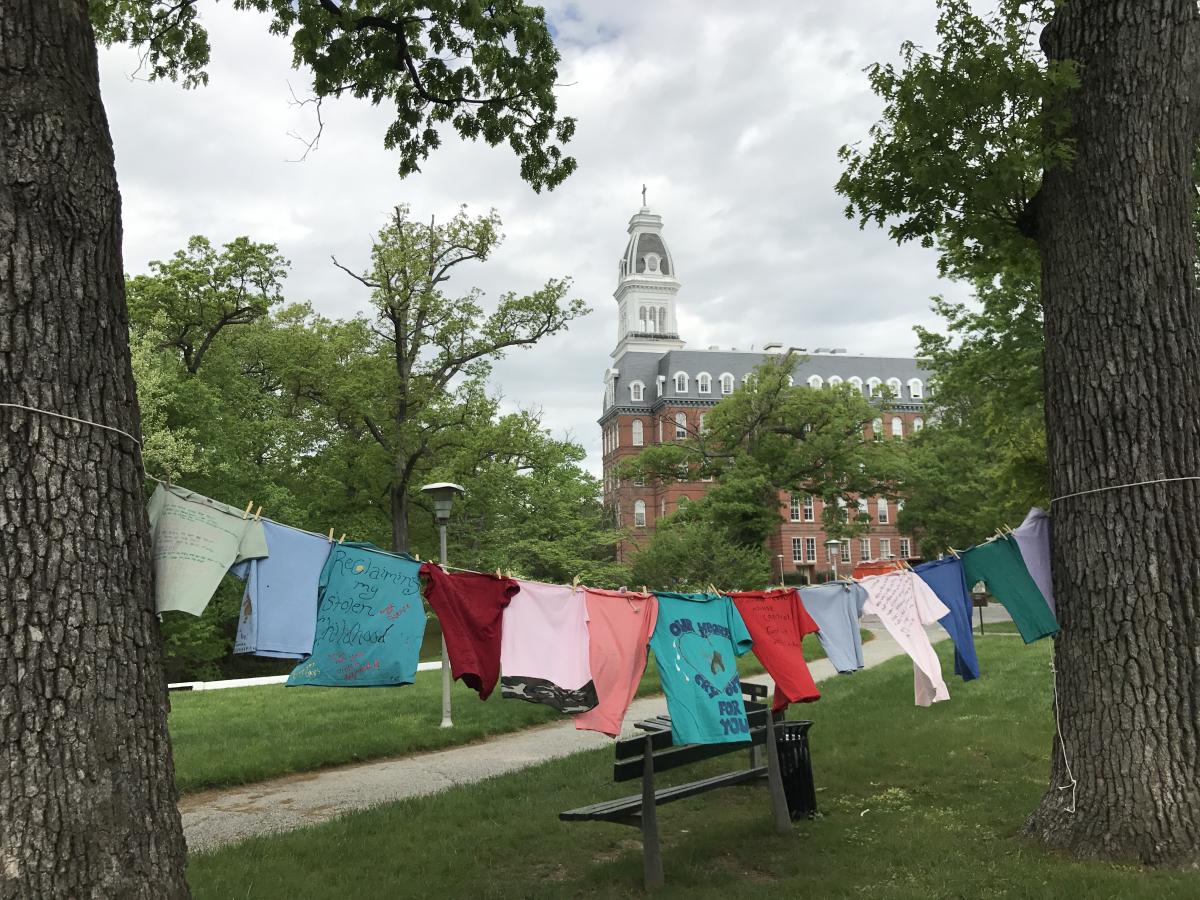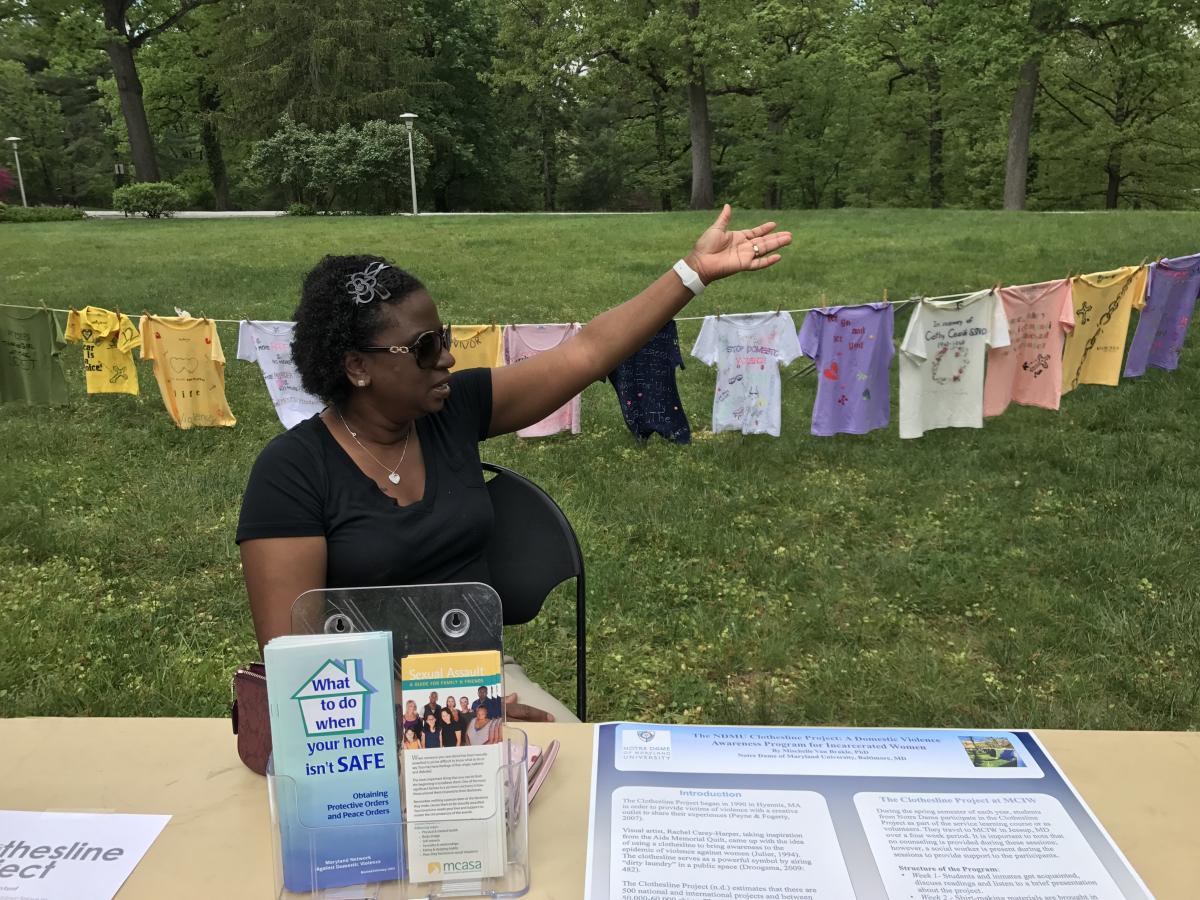Clothesline Project Celebrates its 20th Anniversary

- 1 out of every 6 women has been a victim of attempted or completed rape in her lifetime.
- 1 in 5 girls is a victim of child sexual abuse.
- Every 9 seconds in the U.S., a woman is assaulted or beaten.
These are some of the many statistics that the Clothesline Project is fighting against.
Each year, the Clothesline Project displays t-shirts decorated by survivors of physical, sexual and emotional violence. The t-shirts are hung on clotheslines tied around trees in Doyle lawn. Each t-shirt shares a story about abuse and survival.
Dr. Susan Barber, a retired associate professor of history at Notre Dame, started the project on campus back in 1997 as part of her Introduction Women’s Studies class in collaboration with the Maryland Correctional Institution for Women in Jessup, Maryland. Since then, the Clothesline Project has become an integral part of the campus community, reflecting the university’s mission of social justice and women’s empowerment through education.
This year, the project is a collaboration between the criminology department at Notre Dame and MCIW since Dr. Barber’s retirement. Dr. Mischelle VanBrakle and Professor Ashley Fundack successfully spearheaded the project in its 20th year. Rather than standing as a service component of a class, the project was opened up to any student interested in volunteering. Student volunteers visited MCIW in four sessions, working with incarcerated women in decorating the shirts and listening to their stories of abuse and violence.
 Professor Fundack explains that this year’s MCIW participants were excited and responded well to the project. “One participant said to me, ‘My voice is my shirt and it will be heard’ It was a total success as we helped the women to heal and have their voices heard while continuing to raise awareness on violence against women,” she says.
Professor Fundack explains that this year’s MCIW participants were excited and responded well to the project. “One participant said to me, ‘My voice is my shirt and it will be heard’ It was a total success as we helped the women to heal and have their voices heard while continuing to raise awareness on violence against women,” she says.
The shirts speak for themselves, confronting topics such as rape, child sexual abuse, domestic violence, murder, sexual orientation and human trafficking. Some say simple lines such as “What doesn’t kill me makes me stronger” with stamps of hands and stop signs around it. Others have lengthy stories specific to the participant that describe their abuse or the abuse a loved one experience.
Kara Sedlack, a senior nursing student, and project volunteer found the project to be an eye-opening experience. “[The project] gives me a way to provide service to others and raise awareness about global issues that society tends to sweep under the rug,” she says. “Every single MCIW participant had a story that they were either abused, raped or faced domestic violence in some shape, way or form. This project allowed healing for a lot of these women.”
 Samantha Bell, a first-year criminology major, agrees. She found the project to be emotional, especially the final presentation of the shirts. For some women, it was the first time they talked about their experience with abuse and violence. “I felt that they were comfortable with us and could share these stories that they had locked up inside for so long,” she explains.
Samantha Bell, a first-year criminology major, agrees. She found the project to be emotional, especially the final presentation of the shirts. For some women, it was the first time they talked about their experience with abuse and violence. “I felt that they were comfortable with us and could share these stories that they had locked up inside for so long,” she explains.
The Clothesline Project will be displayed in Doyle Lawn from May 2 to May 4. It will be dedicated to Sister Cathy Cesnik, an SSND who was murdered in 1969.
Learn more about the history of the Clothesline Project.




